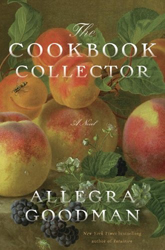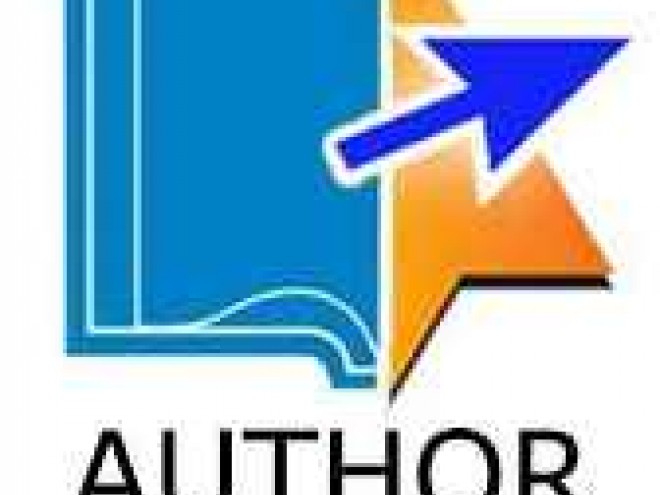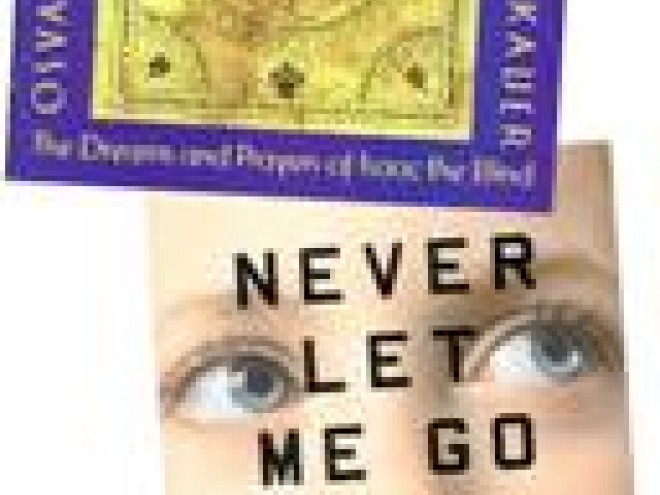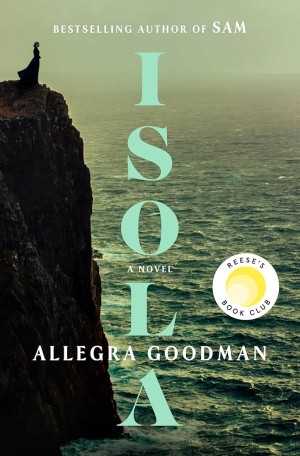Allegra Goodman is the author. Her new novel, The Cookbook Collector, will be released next week. She will be blogging all week for the Jewish Book Council and MyJewishLearning’s author blog series.
 Jewish literature means different things to different people. It can mean writing by a Jewish author, writing about Jewish culture, writing about Jews, or writing about Judaism as a religion.
Jewish literature means different things to different people. It can mean writing by a Jewish author, writing about Jewish culture, writing about Jews, or writing about Judaism as a religion.
I don’t always write about Jewish people, but I am always a Jewish author. I don’t always treat Judaism either as culture or as religion, but sometimes I do — notably in my first novel, Kaaterskill Falls (1998), which is about a community of Orthodox Jews who summer in upstate New York.
When Kaaterskill Falls came out, some readers assumed that my own religious beliefs paralleled those of the protagonist, the pious and imaginative Elizabeth Shulman. This was flattering to me, because I loved the character. However, I am her author, not her sister. I did not infuse Elizabeth with my own hopes and fears, nor did I share her history. Readers asked: What is it like to write about your religious beliefs? Again, I was flattered by the question. I was creating a character with her own religious beliefs.
People assume that writing is self expression, and to some extent they are right. The tricky part is that fiction writers express themselves by displacing their experiences, transposing their beliefs, coding their feelings. A novel is closer to dream than memoir. Therefore, while my work is deeply personal, it is not autobiographical. That’s what makes my job so satisfying. I am not Elizabeth Shulman, the Orthodox mother of five, any more than I’m Sharon Spiegelman, the bohemian seeker in my second novel, Paradise Park (2001).
Indeed, I think of those novels as part of a larger project — a kind of “Songs of Innocence” and “Songs of Experience” in which I explore the spiritual lives of two very different Jewish women in America. Elizabeth lives a highly structured life, and longs for autonomy. Sharon lives in a wilderness of choice, and longs for structure and guidance. My relationship to these characters? I’m both and neither.
As an artist I take religion as a rich subject. I’m fascinated by belief, by ritual, by the way that people define themselves and search for meaning. Religion is but one of my subjects, however.
My third novel, Intuition (2006), is about a group of cancer researchers. None is particularly religious. The Jews among them are quite assimilated. This is a novel about belief and doubt, about trust, about generational tension, about ritual and tradition — but I write of belief and doubt as powerful forces in scientific investigation, about trust within an intellectual community, about generational tension, ritual and tradition inside a laboratory. Intuition is a book about science and also a book about the soul.
My new novel, The Cookbook Collector, is a novel about identity, particularly buried Jewish identity. It is also a novel about technology and its discontents. It’s a book about the longing
for authenticity in a virtual world, about trust and betrayal and the need to connect. Most
striking, The Cookbook Collector is about the displacement of desire.
I’m fascinated by the way we read cookbooks instead of cooking, collect material things instead of living, pursue fame and fortune instead of loving. I ask — what happens when we wake up? What happens when we declare, as Orlando does in As You Like It— “I can live no longer by thinking”? This is a human question. In the end, dreams and thoughts can’t substitute for real life. It’s a modern question. Our virtual connections and our cyber world can’t substitute for face to face conversation. And it’s a Jewish question. Jews are often tagged “the people of the book,” but Judaism is a religion in which actions speak louder than words. For me, writing Jewish fiction means enjoying these multiple valences.
I don’t see “Jewish-American” or “Jewish woman” or “Jewish artist” as either/or propositions. Nor do I view Judaism narrowly as culture or religion or ethnicity. As an artist I think of Judaism as an additive rather than exclusive quality. Perhaps you can tell from this that I am the daughter of a Jewish philosopher!
Allegra Goodman’s new novel, The Cookbook Collector, is available for pre-order. Find her on Facebook and her website, and come back all week to read her posts for the Jewish Book Council and MyJewishLearning.
Allegra Goodman is the author of six novels, including the national bestseller Sam, which was a Read with Jenna selection; two short story collections; and a novel for young readers. Her fiction has appeared in The New Yorker and elsewhere, and has been anthologized in The O. Henry Awards and Best American Short Stories. She lives with her family in Cambridge, Massachusetts.



